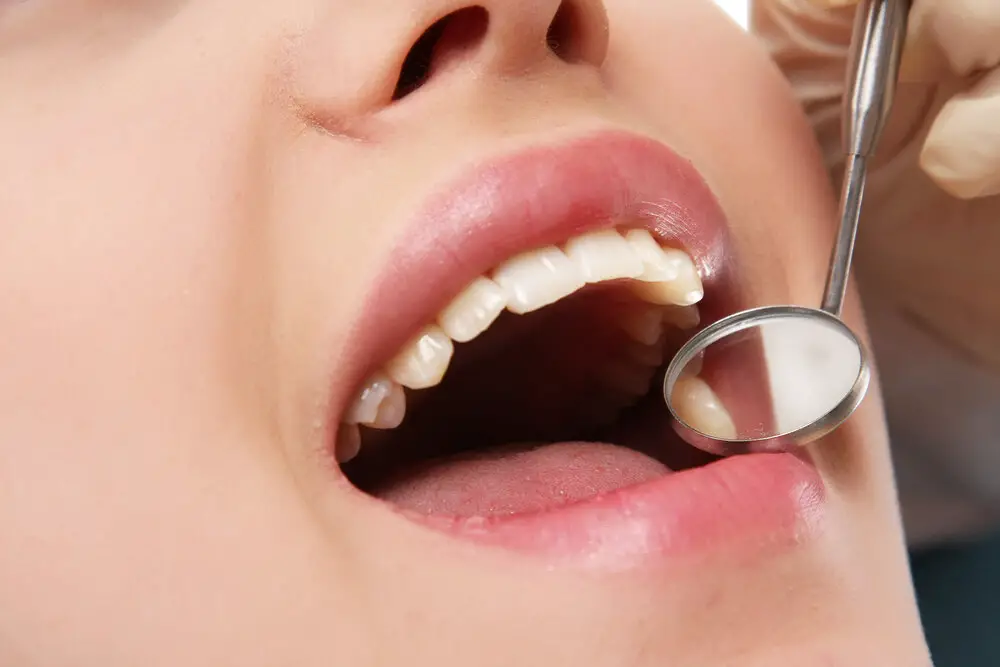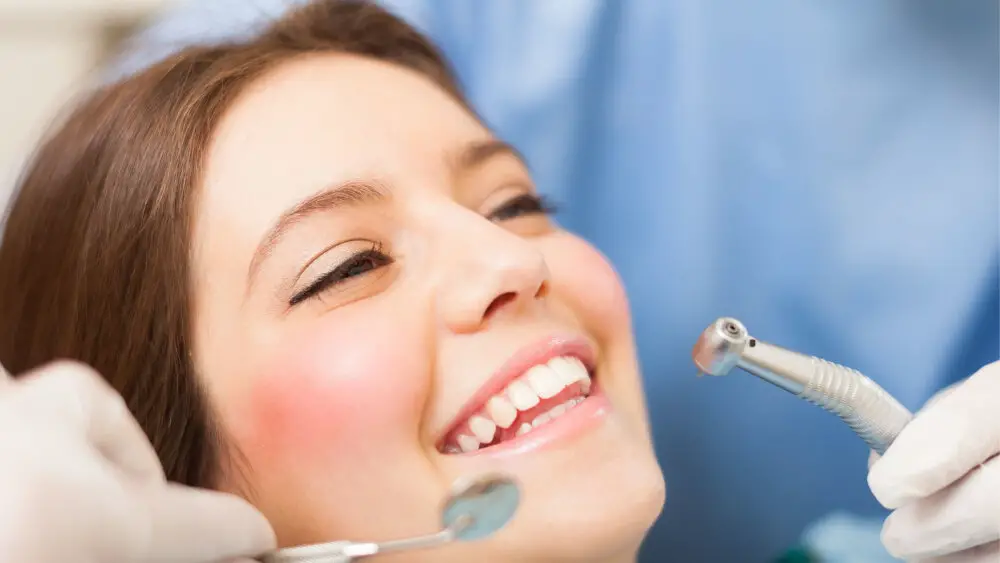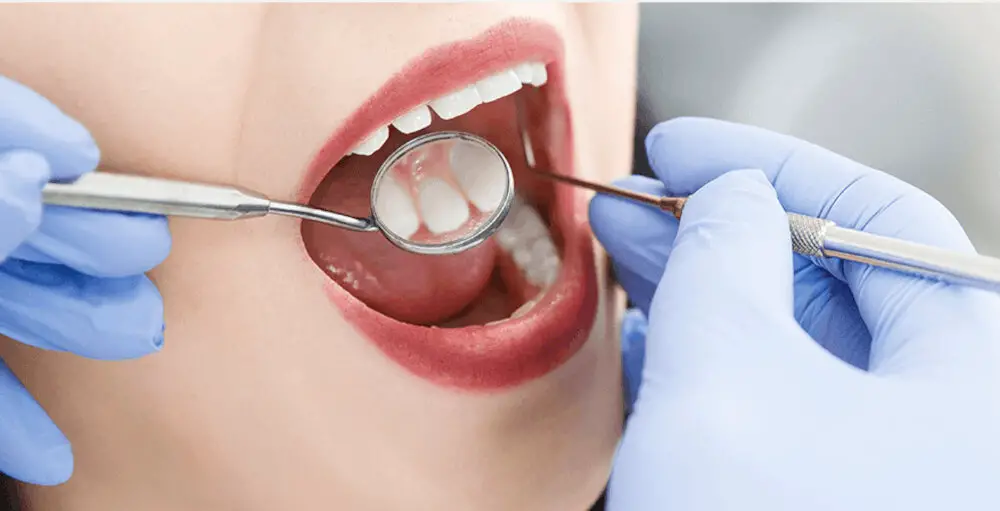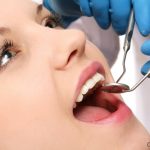Smoking After Wisdom Teeth Removal: How Long is the Required Abstinence Period?

Wisdom teeth removal is a common dental procedure that many people undergo at some point in their lives. It entails the surgical extraction of one or more wisdom teeth, which are the last set of molars that typically emerge between the ages of 17 and 25. While the procedure itself is relatively straightforward, the recovery period can be challenging, especially when it comes to smoking. Smoking after wisdom teeth removal can significantly impact the healing process and increase the risk of complications, such as infection, dry socket, and delayed healing. Therefore, it’s essential to understand how long the required abstinence period is to avoid potential complications and promote a speedy recovery. The abstinence period for smoking after wisdom teeth removal varies depending on several factors, such as the patient’s age, overall health, and the severity of the procedure. Generally, dentists recommend refraining from smoking for at least 48 to 72 hours after the surgery. During this time, the patient should avoid smoking cigarettes, cigars, pipes, or any other type of tobacco product, as well as vaping or using e-cigarettes. While it may be tempting to resume smoking, doing so too soon can interfere with the blood clotting process, disrupt the healing of the surgical site, and increase the risk of infection. Therefore, patience and self-discipline are crucial during this critical post-operative period to ensure a successful recovery.
Wisdom teeth, also known as third molars, are the last set of teeth to develop in the back of the mouth. They typically emerge between the ages of 17 and 25, but often there is not enough space for them to fully erupt, causing them to become impacted. Impacted wisdom teeth can cause a range of issues, including pain, infection, gum disease, and damage to neighboring teeth. Due to these potential complications, dentists often recommend the removal of wisdom teeth. This procedure is typically done under anesthesia, and recovery can take several days to a week, during which time patients are advised to abstain from smoking and other activities that may disrupt the healing process.
After wisdom teeth removal, patients may experience several complications such as pain, swelling, bleeding, and infection. These complications can be managed with painkillers, ice packs, and antibiotics. However, smoking after wisdom teeth removal can increase the risk of complications such as dry socket, delayed healing, and infection. Dry socket occurs when the blood clot that forms in the socket is dislodged, exposing the bone and nerves, causing severe pain. Delayed healing can occur due to the nicotine in tobacco, which constricts the blood vessels and reduces blood flow to the surgical site. This can delay the healing process and increase the risk of infection. Therefore, it is recommended to abstain from smoking for at least 72 hours after wisdom teeth removal to minimize the risk of complications and promote faster healing.
Smoking after wisdom teeth removal can be particularly problematic due to the negative effects it has on the healing process. Smoking causes constriction of blood vessels and reduces blood flow, which can lead to delayed healing and increase the risk of infection. Additionally, the suction created when inhaling smoke can dislodge the blood clot that forms in the extraction site, leading to a painful condition called dry socket. The chemicals in cigarette smoke can also irritate the gums and oral tissues, further hindering the healing process. Therefore, to ensure proper healing and minimize complications, it is recommended to abstain from smoking for a period of at least 72 hours after wisdom teeth removal.
Why Smoking is Problematic After Wisdom Teeth Removal

Smoking after wisdom teeth removal can be problematic for several reasons. Firstly, smoking introduces harmful chemicals and toxins into the mouth, which can increase the risk of infection and slow down the healing process. After wisdom teeth removal, the body is working hard to repair the site of the extraction, and smoking can interfere with this process by reducing blood flow and oxygen levels in the affected area. This can lead to complications such as dry socket, a painful condition that occurs when the blood clot that forms in the socket is dislodged or dissolved, leaving the bone and nerves exposed. In addition to the risk of infection and dry socket, smoking after wisdom teeth removal can also cause pain and discomfort. The act of smoking requires the mouth to produce suction, which can put pressure on the site of the extraction and cause pain. Furthermore, the heat and smoke from cigarettes can irritate the delicate tissues in the mouth, leading to further discomfort. To avoid these complications, it is important to abstain from smoking for the recommended period of time after wisdom teeth removal, which can vary depending on the individual case. By doing so, you can help ensure a smoother, more comfortable recovery and reduce the risk of complications.
Smoking is a major risk factor for oral health problems. It can cause staining of the teeth and tongue, bad breath, and a decreased sense of taste and smell. Smoking can also lead to gum disease, which can cause bleeding, inflammation, and ultimately tooth loss. The nicotine in cigarettes can constrict blood vessels, which can lead to a decrease in blood flow to the gums and other oral tissues, impairing the healing process after wisdom teeth removal. Additionally, smoking can increase the risk of developing oral cancer, which can be life-threatening. Therefore, it is crucial to abstain from smoking for a recommended period after wisdom teeth removal to ensure proper healing and overall oral health.
Smoking can significantly hinder the healing process after wisdom teeth removal due to a variety of factors. Firstly, nicotine in cigarettes constricts blood vessels, reducing blood flow and oxygen supply to the affected area, which is crucial for proper healing. Additionally, smoking introduces harmful chemicals into the body, which can damage the cells and tissues responsible for healing. Inflammation and infection are also more likely to occur in smokers, further delaying the healing process. Furthermore, smoking can increase pain and discomfort, as well as the risk of dry socket, a painful condition that can occur when the blood clot in the extraction site is dislodged. Therefore, it is highly recommended to abstain from smoking for at least 72 hours after wisdom teeth removal to ensure optimal healing and minimize complications.
Smoking after wisdom teeth removal can increase the risk of complications and delay the healing process. Nicotine and other harmful substances in cigarette smoke can constrict blood vessels, reducing the flow of oxygen and important nutrients to the surgical site. This can lead to a higher risk of infection, dry socket, and delayed wound healing. Furthermore, the act of smoking itself can increase the chances of developing dry socket, a painful condition that occurs when the blood clot in the extraction site becomes dislodged or dissolves. Therefore, it is crucial to abstain from smoking for at least 72 hours after wisdom teeth removal to ensure proper healing and minimize the risk of complications.
The Required Abstinence Period

After a wisdom teeth removal surgery, the healing process can be slow and painful. One of the most important things to consider during the recovery period is the required abstinence period from smoking. Smoking can cause infections, delay the healing process, and increase the risk of complications. The required abstinence period from smoking after wisdom teeth removal surgery varies from person to person, but it is recommended to abstain from smoking for at least 72 hours after the surgery. The reason why smoking is not recommended during the healing process is because it can cause dry sockets. Dry sockets are a painful condition that occurs when the blood clot that forms in the socket where the tooth was removed is dislodged or dissolved before the wound has healed. Smoking can cause the blood vessels to constrict, which reduces blood flow to the wound, and increases the risk of dry sockets. Additionally, smoking can also increase the risk of infection, as the smoke can carry bacteria and other harmful substances into the wound, which can delay the healing process and cause complications. Therefore, it is essential to follow the recommended abstinence period from smoking after wisdom teeth removal surgery to ensure a smooth and speedy recovery.
It is crucial to avoid smoking after wisdom teeth removal due to various reasons. Firstly, smoking can lead to delayed healing and increase the risk of developing dry socket, a painful condition that occurs when the blood clot in the socket dissolves, exposing the bone and nerves. Secondly, smoking can cause vasoconstriction, which reduces blood flow to the wound and impairs the immune system’s ability to fight infections. Furthermore, smoking can also interfere with the effectiveness of pain medications and cause nausea, dizziness, and other side effects. Therefore, it is highly recommended to abstain from smoking for at least 48-72 hours after wisdom teeth removal to ensure proper healing and prevent complications.
After having wisdom teeth removed, it is crucial to abstain from smoking to avoid complications during the healing process. The typical length of the required abstinence period varies depending on the individual’s healing process and the extent of the surgery. It is recommended to avoid smoking for at least 72 hours after the surgery to reduce the risk of dry socket, which is a painful condition that occurs when the blood clot in the socket is dislodged. However, some dentists may advise a longer period of abstinence, up to a week or more, to ensure proper healing and reduce the risk of infection. It is essential to follow the dentist’s instructions carefully and refrain from smoking until the recommended abstinence period has passed to promote a speedy and successful recovery.
The period of abstinence from smoking after wisdom teeth removal can vary depending on individual circumstances. Factors such as the number of teeth removed, the complexity of the extraction, and the individual’s overall health can all play a role in determining how long someone should wait before smoking again. Additionally, smoking can slow the healing process and increase the risk of complications such as dry socket, so it is important to follow your dentist or oral surgeon’s recommendations for post-operative care. While some people may be able to resume smoking within a few days, others may need to wait several weeks or even months to ensure proper healing and minimize the risk of complications. Ultimately, the length of the required abstinence period will vary based on a variety of factors specific to each individual.
Coping Strategies for Smokers

Smoking is a highly addictive habit that can pose severe health risks. Despite knowing the negative consequences, smokers often find it challenging to quit smoking. Coping strategies can be useful for individuals who are struggling to quit smoking. One of the coping strategies that smokers can use is to replace smoking with other activities such as exercise or meditation. Exercise can help reduce cravings and improve mood, while meditation can help reduce stress and anxiety, which are common triggers for smoking. Another useful coping strategy for smokers is to seek support from friends, family members, or support groups. Having a support system can provide smokers with the motivation and encouragement they need to quit smoking. Support groups can also provide smokers with a safe space to share their experiences and struggles, which can be helpful in reducing feelings of isolation and shame. Additionally, nicotine replacement therapy, such as nicotine gum or patches, can be useful for smokers who are struggling to quit smoking. These products can help reduce cravings and withdrawal symptoms, making it easier for smokers to quit smoking for good.
Nicotine cravings and withdrawal symptoms can be tough to deal with, but there are several strategies that can help you cope. First and foremost, it’s important to stay hydrated and eat healthy foods to support your body during this process. You can also try using nicotine replacement therapy, such as patches or gum, to help ease cravings. Additionally, engaging in activities that distract you from smoking, such as exercise or hobbies, can be helpful. It’s crucial to have a support system in place, whether it’s friends, family, or a professional counselor. Finally, remind yourself of the benefits of quitting smoking, such as improved health and financial savings, to stay motivated.
While smoking is a popular way of delivering nicotine to the body, it is also a dangerous one. Luckily, there are several alternative methods of nicotine delivery that may be safer than smoking. One of these methods is nicotine patches, which are placed on the skin and deliver a steady dose of nicotine over time. Another option is nicotine gum, which releases nicotine through the oral mucosa. Nicotine inhalers, which deliver nicotine through the mouth and throat, are also a potential alternative to smoking. Additionally, electronic cigarettes, or e-cigarettes, have become increasingly popular in recent years as a way of delivering nicotine without the harmful effects of smoking. While the long-term effects of these methods are still being studied, they are generally considered to be safer than smoking cigarettes.
If you want to avoid smoking during the abstinence period after wisdom teeth removal, there are a few tips you can follow. Firstly, you can try distracting yourself with activities such as reading a book, going for a walk or watching a movie. This will help you take your mind off the urge to smoke. Secondly, you can try using nicotine replacement therapy such as nicotine gum or patches to help alleviate your cravings. Thirdly, you can try practicing relaxation techniques such as deep breathing or meditation to help reduce stress and anxiety which can increase the desire to smoke. Finally, you can seek support from family and friends who can encourage you to stay smoke-free during this period. Remember, the longer you can abstain from smoking, the better chance you have of a successful recovery after wisdom teeth removal.
Risks of Ignoring the Required Abstinence Period

After undergoing wisdom teeth extraction surgery, your dentist will advise you to abstain from smoking for a certain period. Ignoring this recommendation can lead to serious complications and prolonged recovery time. Smoking after wisdom teeth removal can cause dry socket, a painful condition that occurs when the blood clot in the socket where the tooth was removed becomes dislodged or dissolves before the wound has healed. Dry socket can delay the healing process and cause severe pain, bad breath, and an unpleasant taste in the mouth. Smoking can also increase the risk of infection and inflammation, which can further worsen the condition. Ignoring the required abstinence period can also affect the effectiveness of the anesthesia used during the surgery. Smoking can cause the blood vessels to constrict, reducing blood flow and oxygen supply to the tissues. This can make it difficult for the anesthesia to work effectively, leading to a longer recovery time and increased pain. Moreover, smoking can interfere with the body’s natural healing process, causing the tissues to take longer to repair and regenerate. This can delay the formation of new bone tissue, which is essential for a successful recovery. Therefore, it is important to follow your dentist’s advice and abstain from smoking for the recommended period to avoid potential risks and ensure a smooth and speedy recovery.
Smoking after wisdom teeth removal can have severe consequences and should be avoided for at least 72 hours. Smoking can cause the blood vessels in the mouth to constrict, reducing blood flow to the wound and delaying the healing process. The suction created while smoking can also dislodge the blood clot that forms in the socket, leading to a painful condition called dry socket. Dry socket can result in infection and the need for additional treatment. Additionally, smoking introduces harmful chemicals into the body, which can further slow the healing process and increase the risk of complications. It is important to follow the recommended abstinence period and avoid smoking to ensure a smooth and successful recovery.
The risks associated with smoking after wisdom teeth removal can be compounded by various other factors that include poor oral hygiene and underlying health conditions. Poor oral hygiene can increase the chances of infection and delay the healing process of the extraction site. Additionally, underlying health conditions such as diabetes can impair the immune system’s ability to fight off infection and prolong the recovery period. Moreover, smoking can also exacerbate the complications associated with these factors, leading to a higher risk of dry socket, infection, and delayed healing. Therefore, it is crucial to maintain good oral hygiene and manage any underlying health conditions before and after the wisdom teeth removal procedure to minimize the risks associated with smoking.
The article discusses the recommended abstinence period from smoking after wisdom teeth removal. It highlights the dangers of smoking during the healing process, such as delayed healing, infection, and dry socket. The article suggests that smokers should refrain from smoking for at least 72 hours after the surgery and ideally for a longer period of time to ensure proper healing. Nicotine replacement therapy is also mentioned as an alternative option for smokers who cannot abstain from smoking for an extended period. The article concludes that quitting smoking altogether can improve overall health and reduce the risk of complications after surgery.
Following the required abstinence period after wisdom teeth removal is crucial for a successful and speedy recovery. It is recommended to abstain from smoking for at least 72 hours after surgery to prevent complications such as dry socket, infection, and delayed healing. Smoking can reduce blood flow to the surgical site, increasing the risk of infection and delaying the healing process. Dry socket, a painful condition where the blood clot in the socket becomes dislodged, is more likely to occur in smokers. Therefore, adhering to the recommended abstinence period is essential to avoid potential complications and ensure a smooth recovery.
It is highly recommended that individuals who have recently undergone wisdom teeth removal should avoid smoking for a certain period of time. Smoking can cause various complications such as dry socket, bacterial infection, and delayed healing. If you are a smoker and have concerns about smoking after wisdom teeth removal, it is best to seek advice from your dentist or oral surgeon. They can provide you with the necessary information on the abstinence period and the risks associated with smoking during the healing process. Remember, it is crucial to follow their instructions to ensure a smooth and successful recovery.
Conclusion

In conclusion, smoking after wisdom teeth removal can cause serious complications and delay the healing process. It is essential to abstain from smoking for a minimum of 48-72 hours after the procedure to prevent dry socket and other potential complications. Additionally, smoking can cause harmful effects on overall oral health, and it is highly recommended to quit smoking altogether. Patients should follow their dentist’s instructions and take necessary precautions to promote a smooth and successful recovery. By taking the necessary steps to avoid smoking after wisdom teeth removal, patients can ensure optimal healing and long-term oral health.






